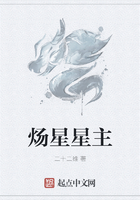That mob of peers did really represent the English people--that is to say, it was honest, ignorant, vaguely excited, almost unanimous, and obviously wrong. Of course, rational democracy is better as an expression of the public will than the haphazard hereditary method.
While we are about having any kind of democracy, let it be rational democracy. But if we are to have any kind of oligarchy, let it be irrational oligarchy. Then at least we shall be ruled by men.
But the thing which is really required for the proper working of democracy is not merely the democratic system, or even the democratic philosophy, but the democratic emotion. The democratic emotion, like most elementary and indispensable things, is a thing difficult to describe at any time.
But it is peculiarly difficult to describe it in our enlightened age, for the ****** reason that it is peculiarly difficult to find it.
It is a certain instinctive attitude which feels the things in which all men agree to be unspeakably important, and all the things in which they differ (such as mere brains)to be almost unspeakably unimportant. The nearest approach to it in our ordinary life would be the promptitude with which we should consider mere humanity in any circumstance of shock or death.
We should say, after a somewhat disturbing discovery, "There is a dead man under the sofa." We should not be likely to say, "There is a dead man of considerable personal refinement under the sofa."We should say, "A woman has fallen into the water." We should not say, "A highly educated woman has fallen into the water." Nobody would say, "There are the remains of a clear thinker in your back garden."Nobody would say, "Unless you hurry up and stop him, a man with a very fine ear for music will have jumped off that cliff."But this emotion, which all of us have in connection with such things as birth and death, is to some people native and constant at all ordinary times and in all ordinary places. It was native to St. Francis of Assisi. It was native to Walt Whitman.
In this strange and splendid degree it cannot be expected, perhaps, to pervade a whole commonwealth or a whole civilization;but one commonwealth may have it much more than another commonwealth, one civilization much more than another civilization.
No community, perhaps, ever had it so much as the early Franciscans.
No community, perhaps, ever had it so little as ours.
Everything in our age has, when carefully examined, this fundamentally undemocratic quality. In religion and morals we should admit, in the abstract, that the sins of the educated classes were as great as, or perhaps greater than, the sins of the poor and ignorant.
But in practice the great difference between the mediaeval ethics and ours is that ours concentrate attention on the sins which are the sins of the ignorant, and practically deny that the sins which are the sins of the educated are sins at all.
We are always talking about the sin of intemperate drinking, because it is quite obvious that the poor have it more than the rich.
But we are always denying that there is any such thing as the sin of pride, because it would be quite obvious that the rich have it more than the poor.
We are always ready to make a saint or prophet of the educated man who goes into cottages to give a little kindly advice to the uneducated.
But the medieval idea of a saint or prophet was something quite different.
The mediaeval saint or prophet was an uneducated man who walked into grand houses to give a little kindly advice to the educated.
The old tyrants had enough insolence to despoil the poor, but they had not enough insolence to preach to them.
It was the gentleman who oppressed the slums; but it was the slums that admonished the gentleman. And just as we are undemocratic in faith and morals, so we are, by the very nature of our attitude in such matters, undemocratic in the tone of our practical politics.
It is a sufficient proof that we are not an essentially democratic state that we are always wondering what we shall do with the poor.
If we were democrats, we should be wondering what the poor will do with us.
With us the governing class is always saying to itself, "What laws shall we make?" In a purely democratic state it would be always saying, "What laws can we obey?" A purely democratic state perhaps there has never been. But even the feudal ages were in practice thus far democratic, that every feudal potentate knew that any laws which he made would in all probability return upon himself.
His feathers might be cut off for breaking a sumptuary law.
His head might be cut off for high treason. But the modern laws are almost always laws made to affect the governed class, but not the governing.
We have public-house licensing laws, but not sumptuary laws.
That is to say, we have laws against the festivity and hospitality of the poor, but no laws against the festivity and hospitality of the rich.
We have laws against blasphemy--that is, against a kind of coarse and offensive speaking in which nobody but a rough and obscure man would be likely to indulge. But we have no laws against heresy--that is, against the intellectual poisoning of the whole people, in which only a prosperous and prominent man would be likely to be successful. The evil of aristocracy is not that it necessarily leads to the infliction of bad things or the suffering of sad ones;the evil of aristocracy is that it places everything in the hands of a class of people who can always inflict what they can never suffer.
Whether what they inflict is, in their intention, good or bad, they become equally frivolous. The case against the governing class of modern England is not in the least that it is selfish; if you like, you may call the English oligarchs too fantastically unselfish.
The case against them simply is that when they legislate for all men, they always omit themselves.















